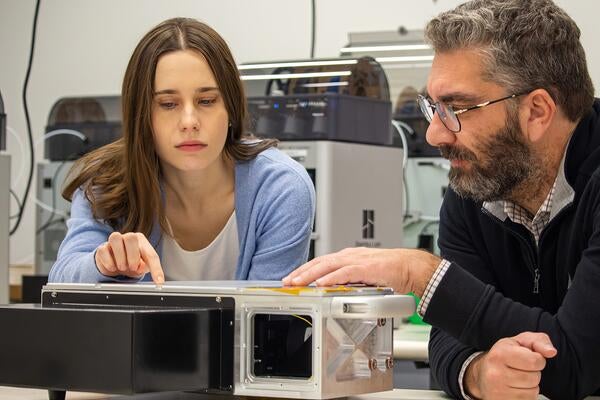
Researchers use AI to analyze tweets debating vaccination and climate change
Analyzing roughly 87 million tweets, researchers found sentiments around climate change to be uniform, but not so for vaccination

Analyzing roughly 87 million tweets, researchers found sentiments around climate change to be uniform, but not so for vaccination
By Media RelationsUsing artificial intelligence (AI) researchers have found that between 2007 and 2016 online sentiments around climate change were uniform, but this was not the case with vaccination.
Climate change and vaccinations might share many of the same social and environmental elements, but that doesn’t mean the debates are divided along the same demographics.
A research team from the University of Waterloo and the University of Guelph trained a machine-learning algorithm to analyze a massive number of tweets about climate change and vaccination.
The researchers found that climate change sentiment was overwhelmingly on the pro side of those that believe climate change is because of human activity and requires action. There was also a significant amount of interaction between users with opposite sentiments about climate change.
However, in the snapshot of the timeframe of the dataset, vaccine sentiment was nowhere near so uniform. In fact, only some 15 or 20 per cent of users expressed a clearly pro-vaccine sentiment, while around 70 per cent expressed no strong sentiment. Perhaps more importantly, individuals and entire online communities with differing sentiments toward vaccination interacted much less than the climate change debate.
“It is an open question whether these differences in user sentiment and social media echo chambers concerning vaccines created the conditions for highly polarized vaccine sentiment when the COVID-19 vaccines began to roll out,” said Chris Bauch, professor of applied mathematics at the University of Waterloo. “If we were to do the same study today with data from the past two years, the results might be wildly different. Vaccination is a much hotter topic right now and appears to be much more polarized given the ongoing pandemic.”
The research goal was to learn how sentiments on climate change and vaccination may be related, how users form networks and share information, the relationship between online sentiments, and how people act and make decisions in daily life.
“There’s been some work done on the polarization of opinions in Twitter and other social media,” said Madhur Anand, professor of environmental sciences at the University of Guelph. “Most other research looks at these as isolated issues, but we wanted to look at these two issues of climate change and vaccination side-by-side. Both issues have social and environmental components, and there are lots to learn in this research pairing.”
The dataset for the project was drawn from a few sources, including some that were purchased from Twitter. In total, the analysis takes into consideration roughly 87 million tweets. The time range for the tweets is between 2007 and 2016.
This means that the data precedes COVID-19 and offers a snapshot of vaccine sentiment in the years leading up to the pandemic.
The AI ranked the millions of tweets as either pro, anti or neutral sentiment on the issues and then classified users in pro, anti or neutral categories. It also analyzed the structure of online communities and the degree to which users with opposing sentiments interacted.
“We expected to find that user sentiment and how users formed networks and communities to be more or less the same for both issues,” said Bauch. “But actually, we found that the way climate change discourse and vaccine discourse worked on Twitter were quite different.”
Anand, Bauch and team members Justin Schonfeld, Edward Qian, Jason Sinn, and Jeffrey Cheng published their findings, “Debates about vaccines and climate change on social media networks: a study in contrasts,” in the journal Humanities and Social Sciences Communications.

A car’s exhaust pipe emits black carbon. This sooty form of pollution alters the “light environment” beneath the snow, affecting plant growth. (Kmatija/Getty Images)
Read more
Research into light and snow interactions provides new insights into how pollution can affect vegetation growth and impact ecosystems

Read more
Researchers developed a process to reduce the amount of energy needed to run data centres

Read more
Phantom Photonics’ quantum remote sensing technology offers precision for industries operating in extreme environments
The University of Waterloo acknowledges that much of our work takes place on the traditional territory of the Neutral, Anishinaabeg, and Haudenosaunee peoples. Our main campus is situated on the Haldimand Tract, the land granted to the Six Nations that includes six miles on each side of the Grand River. Our active work toward reconciliation takes place across our campuses through research, learning, teaching, and community building, and is co-ordinated within the Office of Indigenous Relations.